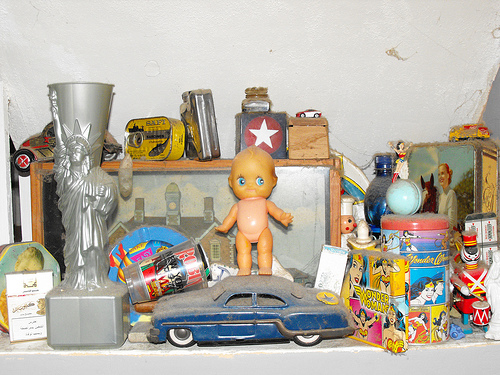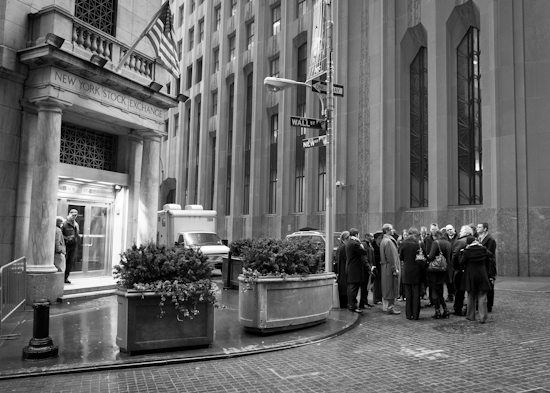
The other day in the office I prepared an email for an outspoken co-worker who sits a few cubicles over. I knew that he’d have follow-up questions for me immediately, and that he wouldn’t bother emailing them — he’d just summon me by calling my name over the cubicles.
I knew he would do this the moment I clicked the send button, because he would see the subject line pop up in a little box on his screen. This sequence was so predictable, so inevitable, that it struck me that the button I was about to push on my mouse might as well have been a button on his brain. Our minds respond so immediately to signals from electronic devices that we’re almost cyborgs already. In the 1980s William Gibson wrote nightmarish books speculating about a future rife with these alarming powers, and now they’re so normal they’re boring.
This hyperconnectedness excites me at least as much as it scares me, though, because it can create amazing turns of fortune. In a similar miracle of brain-to-brain electricity, a single tweet in January caused my whole life to pivot overnight and leave me on a much more empowered course.
Somewhere out in the vast folds of the internet, a blogger I had never heard of discovered a blog I had heard of (because it was my own) and said so on Twitter. This led me to his blog, which proceeded to make my life explode with possibilities and optimism.
The blogger was Mr Money Mustache, who I mention often, and his tweet sparked a neurological renaissance inside me as my brain made new connections between the causes and effects of happiness, money and work. Those landscapes all look very different now because of that tweet. I learned money has more power to create happiness than I suspected, but only if you use it in a completely different way than the typical consumer does.
After that night, instead of buying more needless objects, I put my money in a big, unspent pile, and will now use some of that pile to buy time with which to earn a living outside the jurisdiction of The Man. I gave my notice last week, and as of October 11th I will be working for myself full time.
This means I’ll be making much less for a little while, but I don’t mind that at all, because I become immediately freed from paying the dozens of insidious costs of a steady corporate paycheck — the anti-creative cubicular environment, the dark and fearful mood that descends every Sunday evening, the treadmill of forgettable tasks that have nothing to do with my values, and the attitude of total subordination that’s required to stay employed, to name only a few.
And although they’re not strictly forbidden by living as a fifty-hour-a-week employee, certain pursuits had become a lot more difficult. Since I’m already using my evenings and weekends to run a blog, maintain a few friendships, and keep my home and clothing clean, “electives” like exercising, reading, and conducting creative experiments never find a consistent space to flourish as habits.
With only two weeks of these kinds of constraints left, I’m already feeling some of the fresh breeze from outside the tunnel, and I’m eager to air out some long-suppressed interests. In the spirit of effort-multiplying efficiency advocated by MMM and his frugal cohorts, my first order of business is to use my new-found autonomy to read a hell of a lot more books.
During my years of being an overworked spendthrift, I acquired books at a much higher rate than I actually read them. So I have a surplus of books I’ve been meaning to get around to, and I’m actually making a point of getting around to them.
As much as I loved reading when I found myself doing it, I’ve allowed long stretches of my life to go by without finishing a book. If I’m now going to be answering the question, “What do you do?” with “Writer,” then I ought to be immersing myself in examples of the craft.
For a writer, reading pays triple-time, serving simultaneously as entertainment, self-education, and the refinement of writerly sensibilities, so reading an hour or two a day is now both doable and justifiable. A book a week seems like a good benchmark. It’s ambitious given my track record, but totally achievable — even George W. Bush claimed in his memoir to have read 95 books in a year. So according to my math, if I’m half as smart as the second worst president of all time then I’m almost there. Read More



 I'm David, and Raptitude is a blog about getting better at being human -- things we can do to improve our lives today.
I'm David, and Raptitude is a blog about getting better at being human -- things we can do to improve our lives today.
I highly recommend a consistent, daily meditation practice! For years I was interested in meditation, but never did much more than read a lot about it, and think a lot about it... but that doesn't hold a candle to actually sitting and meditating every day. I find it helpful to keep...